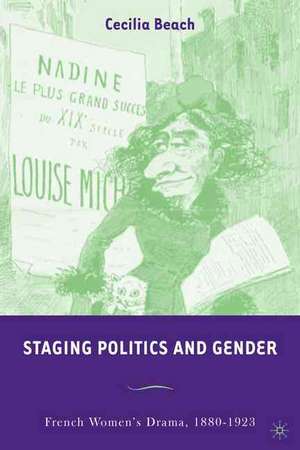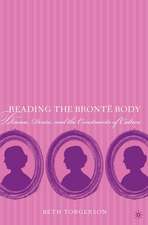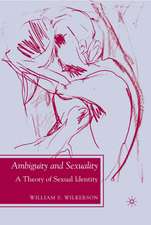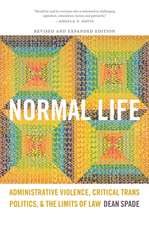Staging Politics and Gender: French Women’s Drama, 1880–1923
Autor C. Beachen Limba Engleză Hardback – 15 iun 2005
| Toate formatele și edițiile | Preț | Express |
|---|---|---|
| Paperback (1) | 380.45 lei 6-8 săpt. | |
| Palgrave Macmillan US – 2 dec 2015 | 380.45 lei 6-8 săpt. | |
| Hardback (1) | 385.08 lei 6-8 săpt. | |
| Palgrave Macmillan US – 15 iun 2005 | 385.08 lei 6-8 săpt. |
Preț: 385.08 lei
Nou
Puncte Express: 578
Preț estimativ în valută:
73.69€ • 78.79$ • 61.44£
73.69€ • 78.79$ • 61.44£
Carte tipărită la comandă
Livrare economică 17 aprilie-01 mai
Preluare comenzi: 021 569.72.76
Specificații
ISBN-13: 9781403965851
ISBN-10: 1403965854
Pagini: 208
Ilustrații: IX, 187 p.
Dimensiuni: 140 x 216 x 17 mm
Greutate: 0.35 kg
Ediția:2005
Editura: Palgrave Macmillan US
Colecția Palgrave Macmillan
Locul publicării:New York, United States
ISBN-10: 1403965854
Pagini: 208
Ilustrații: IX, 187 p.
Dimensiuni: 140 x 216 x 17 mm
Greutate: 0.35 kg
Ediția:2005
Editura: Palgrave Macmillan US
Colecția Palgrave Macmillan
Locul publicării:New York, United States
Cuprins
Introduction: Theatre, Politics and Gender Staging the Revolution; L.Michel Feminism and Free-thinkers; N.Roussel Theatre of a TolstoIenne; V.Starkoff Braving the Law; M.Pelletier Theatre of Ideas; M.Lenéru Conclusion
Recenzii
"In Staging Politics and Gender, Cecilia Beach paints a vivid picture of the culture of radical politics in Paris during the period 1880 to 1923. Chapters on early feminists Louise Michel, Madeleine Pelletier, Nelly Roussel, Véra Starkoff, and Marie Lenéru describe and analyze long forgotten dramatic works that were performed for popular audiences. What these agitprop, thesis plays, and plays of social protest have in common is the goal of creating a more egalitarian secular society in which women have control over their sexuality, reproductive and maternal rights, protection against domestic violence, and the right to divorce. The exhaustive and meticulous research that went into writing this illuminating study prepares Beach to place first-wave feminism in its historical context and to explain how militant activists used drama to fight for women's rights." - Jane Moss, Robert E. Diamond Professor of French and Women's Studies, Colby College
"Through patient and original research, Celia Beach does an inspiring job of filling in the history of women in French theatre from the 1880s to just after World War I. Her broad-based study identifies five activist, often fiery, playwrights: Louis Michel, Nelly Roussel, Vera Starkoff, Madeleine Pelletier, and Marie Leneru, shedding new light on anarchist and feminist cultural work and examining what forms politicized theatre and theatre for the 'people' have used to best effect." - Judith Miller, Chair, Department ofFrench, New York Univeristy
"Cecilia Beach has gone back to the heroic period of the battles for women's rights; to the time when universal secular education was available for the first time in France, when the new socialist ideas were being promoted through the universités populaires. She has demonstrated the key role played by women in the formulation of progressive thought at this time, and has written a meticulously researched study of the role of women dramatists in the most advanced political movements of the period. The names of Louise Michel, Nelly Roussel, Vera Starkoff, Mdeleine Pelletier and Marie Lenéru are almost unknown in the context of theatre history. This publication restores them to their rightful place and will be an essential volume in all libraries specialising in theatre studies. In the year when the Nobel prize went to Elfriede Jellinek, known partly for her play that portrays the struggles of Nora once she leaves her "doll's house", it is particularly good to see this study of Nora's contemporary sisters appearing." - David Bradby, Professor of Drama and Theatre Studies, Royal Holloway, University of London.
"The historical continuities highlighted by Beach are among the most valuable qualities of this book. It is now possible to contextualize properly Apollinaire's Mamelles de Tiresias - a nativist, antifeminist play on the burlesque mode - in the face of the feminists' early struggles for abortion and birth-control, and theirworks for the stage promoting women's issues. Madeleine Pelletier's tragic fate - a medical doctor, she was institutionalized as deranged - is only the best known case of the repression and censorship feminists were exposed to a century ago. The very history of feminist playwrights, journalists and militants of the Belle Epoque has largely been ignored so Beach's book brings both a sense of wonder and relief. Now we have new, fascinating, readable evidence of the debates on marriage and procreation women playwrights produced and brought live to the people. The alliance of socialism and feminism -such as we have applauded it late in the century with Mnouchkine or Duras -is shown as another major phase in the dialectics of politics and art, one illustrated by an Olympe de Gouges two centuries ago. This is a work of superb scholarship, sobriety of tone and style; it conveys admiration and respect for her 'subjects', five women playwrights at the turn of the century. It opens a totally fresh, exciting window on the era : those struggles were stiffled by WWI and Simone de Beauvoir grew up mostly sheltered from them, by circumstance and education. No doubt, the author of The Second Sex - who tried her own, modest sally on stage with Les Bouches inutiles - would have fully shared our enthusiasm for this compelling contribution to the writing of French women's cultural history." - Christiane P. Makward, Professor of French, Francophone, and Women's Studies, Pennsylvania State University"This important and useful study brings extensive and original archive-based research to illuminate an area of French theatre that has been doubly neglected: the anarchist and socialist people's drama of the late nineteenth and early twentieth centuries . . . a text that should be in all libraries concerned with late nineteenth-century cultural history." - H-France
"Through patient and original research, Celia Beach does an inspiring job of filling in the history of women in French theatre from the 1880s to just after World War I. Her broad-based study identifies five activist, often fiery, playwrights: Louis Michel, Nelly Roussel, Vera Starkoff, Madeleine Pelletier, and Marie Leneru, shedding new light on anarchist and feminist cultural work and examining what forms politicized theatre and theatre for the 'people' have used to best effect." - Judith Miller, Chair, Department ofFrench, New York Univeristy
"Cecilia Beach has gone back to the heroic period of the battles for women's rights; to the time when universal secular education was available for the first time in France, when the new socialist ideas were being promoted through the universités populaires. She has demonstrated the key role played by women in the formulation of progressive thought at this time, and has written a meticulously researched study of the role of women dramatists in the most advanced political movements of the period. The names of Louise Michel, Nelly Roussel, Vera Starkoff, Mdeleine Pelletier and Marie Lenéru are almost unknown in the context of theatre history. This publication restores them to their rightful place and will be an essential volume in all libraries specialising in theatre studies. In the year when the Nobel prize went to Elfriede Jellinek, known partly for her play that portrays the struggles of Nora once she leaves her "doll's house", it is particularly good to see this study of Nora's contemporary sisters appearing." - David Bradby, Professor of Drama and Theatre Studies, Royal Holloway, University of London.
"The historical continuities highlighted by Beach are among the most valuable qualities of this book. It is now possible to contextualize properly Apollinaire's Mamelles de Tiresias - a nativist, antifeminist play on the burlesque mode - in the face of the feminists' early struggles for abortion and birth-control, and theirworks for the stage promoting women's issues. Madeleine Pelletier's tragic fate - a medical doctor, she was institutionalized as deranged - is only the best known case of the repression and censorship feminists were exposed to a century ago. The very history of feminist playwrights, journalists and militants of the Belle Epoque has largely been ignored so Beach's book brings both a sense of wonder and relief. Now we have new, fascinating, readable evidence of the debates on marriage and procreation women playwrights produced and brought live to the people. The alliance of socialism and feminism -such as we have applauded it late in the century with Mnouchkine or Duras -is shown as another major phase in the dialectics of politics and art, one illustrated by an Olympe de Gouges two centuries ago. This is a work of superb scholarship, sobriety of tone and style; it conveys admiration and respect for her 'subjects', five women playwrights at the turn of the century. It opens a totally fresh, exciting window on the era : those struggles were stiffled by WWI and Simone de Beauvoir grew up mostly sheltered from them, by circumstance and education. No doubt, the author of The Second Sex - who tried her own, modest sally on stage with Les Bouches inutiles - would have fully shared our enthusiasm for this compelling contribution to the writing of French women's cultural history." - Christiane P. Makward, Professor of French, Francophone, and Women's Studies, Pennsylvania State University"This important and useful study brings extensive and original archive-based research to illuminate an area of French theatre that has been doubly neglected: the anarchist and socialist people's drama of the late nineteenth and early twentieth centuries . . . a text that should be in all libraries concerned with late nineteenth-century cultural history." - H-France
Notă biografică
CECILIA BEACH is Associate Professor of French, and Director of the Women's Studies Program at Alfred University, New York State, USA.











